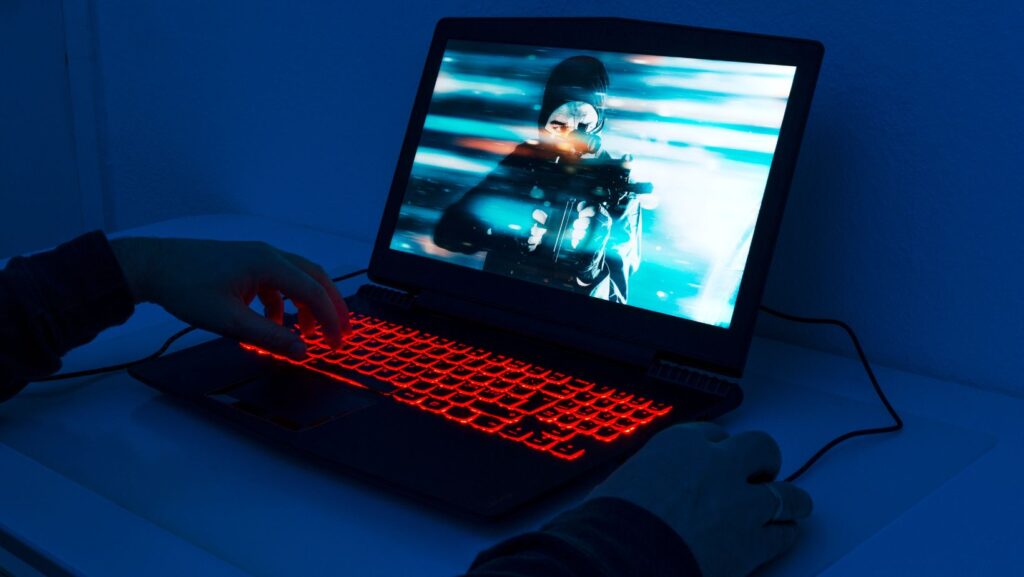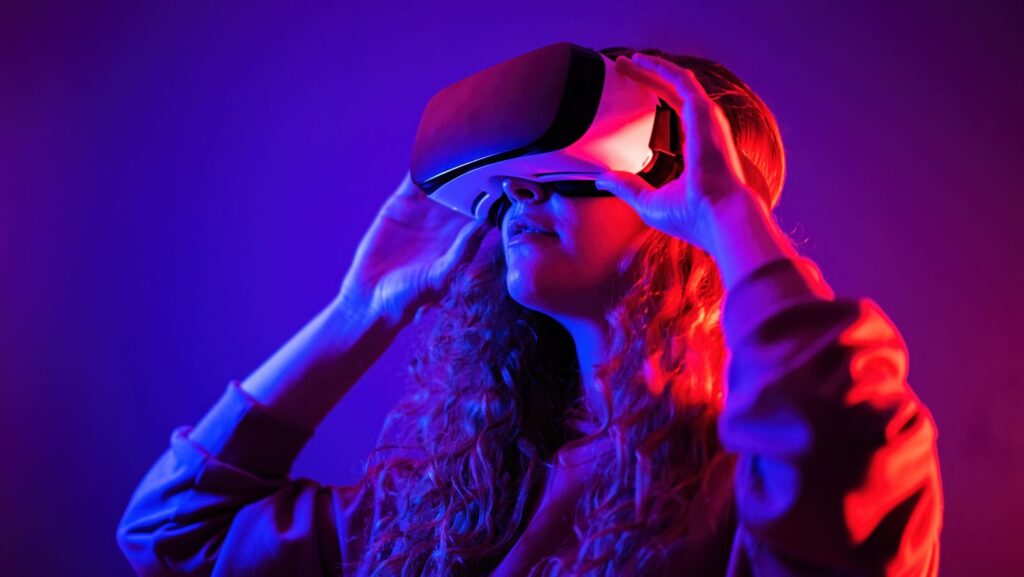 Virtual reality (VR) has revolutionized the gaming world, offering immersive experiences that transport players into entirely new realms. For gamers looking to dive into this cutting-edge technology, a VR-ready gaming laptop is essential. These powerful machines are designed to handle the intense graphics and processing demands of VR games, ensuring smooth gameplay and breathtaking visuals. Choosing the right VR-ready laptop can be overwhelming with so many options available. From GPU performance to display quality, several factors come into play. This article will guide you through the key features to consider, helping you make an informed decision and elevate your gaming experience to the next level.
Virtual reality (VR) has revolutionized the gaming world, offering immersive experiences that transport players into entirely new realms. For gamers looking to dive into this cutting-edge technology, a VR-ready gaming laptop is essential. These powerful machines are designed to handle the intense graphics and processing demands of VR games, ensuring smooth gameplay and breathtaking visuals. Choosing the right VR-ready laptop can be overwhelming with so many options available. From GPU performance to display quality, several factors come into play. This article will guide you through the key features to consider, helping you make an informed decision and elevate your gaming experience to the next level.
VR Ready Gaming Laptop
Graphics Card Requirements
 A powerful graphics card (GPU) is essential in a VR-ready gaming laptop to handle the demanding visuals of VR games. NVIDIA and AMD provide the most popular GPUs for VR. Aim for GPUs like the NVIDIA GeForce RTX 30 series or AMD Radeon RX 6000 series. These graphics cards support advanced VR technologies like ray tracing, which enhance the immersive experience. Ensure the GPU meets the minimum specifications for your VR headset for optimal performance.
A powerful graphics card (GPU) is essential in a VR-ready gaming laptop to handle the demanding visuals of VR games. NVIDIA and AMD provide the most popular GPUs for VR. Aim for GPUs like the NVIDIA GeForce RTX 30 series or AMD Radeon RX 6000 series. These graphics cards support advanced VR technologies like ray tracing, which enhance the immersive experience. Ensure the GPU meets the minimum specifications for your VR headset for optimal performance.
Processor Performance
The CPU plays a crucial role in maintaining a smooth VR experience. Look for laptops with high-performance processors like Intel Core i7 or i9, or AMD Ryzen 7 or 9. These processors offer higher clock speeds and more cores, which help manage the complex calculations required in VR gaming. Multi-core CPUs are better suited for multitasking, which is common in VR environments.
RAM and Storage Options
Adequate RAM is vital for VR gaming, which has higher memory requirements. A VR-ready gaming laptop should have at least 16GB of RAM. 32GB is ideal for more demanding applications. For storage, SSDs are preferable over HDDs because they offer faster data access speeds, which reduces load times in VR games. A combination of a large SSD (at least 512GB) with optional additional HDD storage ensures you have enough space for VR games and other applications.
VR Gaming Laptops in 2023
High-end Choices
When considering high-end VR-ready gaming laptops, several models stand out due to their advanced hardware and performance capabilities.
Alienware m17 R4
- Graphics Card: NVIDIA GeForce RTX 3080
- Processor: Intel Core i9-10980HK
- RAM: 32GB
- Storage: 1TB SSD
Razer Blade 15 Advanced
- Graphics Card: NVIDIA GeForce RTX 3080 Ti
- Processor: Intel Core i9-12900H
- RAM: 32GB
- Storage: 1TB SSD
MSI GE76 Raider
- Graphics Card: NVIDIA GeForce RTX 3080
- Processor: Intel Core i9-11980HK
- RAM: 32GB
- Storage: 2TB SSD
Asus ROG Zephyrus S17
- Graphics Card: NVIDIA GeForce RTX 3080
- Processor: Intel Core i9-11900H
- RAM: 32GB
- Storage: 3TB SSD
These laptops offer top-of-the-line performances, making them ideal for the most demanding VR games. With powerful GPUs and fast processors, they ensure smooth and immersive gaming experiences.
Factors to Consider When Choosing a VR Ready Laptop
Screen Quality and Display Size
Screen quality and display size are crucial for VR ready laptops. High resolution screens (e.g., 4K) provide clear, detailed visuals. Larger screens, such as those over 15 inches, enhance the immersive experience. OLED panels offer deeper blacks and more vibrant colors, beneficial for VR gaming. Refresh rates above 90Hz ensure smoother motion, minimizing eye strain. Consider IPS panels for better viewing angles and color accuracy.
Portability and Battery Life
 Portability and battery life affect the usability of VR ready laptops. Lightweight models are easier to transport, which is ideal for gamers on the go. Laptops under 5 pounds offer a good balance between performance and portability. Battery life exceeding 6 hours ensures longer play sessions without frequent recharging. Models with power-efficient components (e.g., Intel i5/i7 U-series) help extend battery life. Remember that external VR setups may limit true portability, making battery life crucial. A VR-ready gaming laptop should have at least 16GB of RAM. 32GB is ideal for more demanding applications. For storage, SSDs are preferable over HDDs because they offer faster data access speeds, which reduces load times in VR games.
Portability and battery life affect the usability of VR ready laptops. Lightweight models are easier to transport, which is ideal for gamers on the go. Laptops under 5 pounds offer a good balance between performance and portability. Battery life exceeding 6 hours ensures longer play sessions without frequent recharging. Models with power-efficient components (e.g., Intel i5/i7 U-series) help extend battery life. Remember that external VR setups may limit true portability, making battery life crucial. A VR-ready gaming laptop should have at least 16GB of RAM. 32GB is ideal for more demanding applications. For storage, SSDs are preferable over HDDs because they offer faster data access speeds, which reduces load times in VR games.



